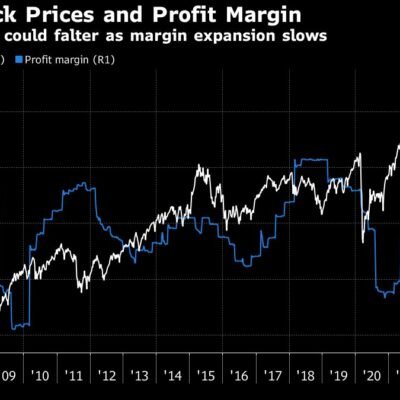Social saunas offer a phone and alcohol-free space to process emotions alongside others
Emily* had built her fintech company revenue to eight figures by age thirty-five. Last year, while speaking on a panel for women entrepreneurs, an inspired audience member asked her, “How do you manage your mental health with so much responsibility?”
Emily forced a saccharin smile. “Positive affirmations and a daily gratitude practice,” she responded confidently.
But behind that smiling moment—which would later receive thousands of “likes” after her social media assistant posted it to her Instagram page—Emily was white-knuckling her way through chronic waves of debilitating anxiety and crushing depression. “I was barely keeping it together,” she told me.
Years of fundraising, sleepless nights, and dinner dates with her computer had caught up to Emily. She couldn’t remember the last time she’d done something spontaneous or taken vacation without guilt. As she watched her peers partner off into serious relationships, she was constantly told she seemed too “unavailable” after a few dates.
It was true that she had tried daily gratitude practices and positive affirmations. She’d also tried transcendental meditation and cognitive behavioral therapy—but the unrelenting internal unrest continued. She quietly felt shame for “failing” at happiness, and even more shame for pretending she wasn’t.
A couple of weeks later, Emily experienced an unexpected breakthrough at a company team-building event—held at a trendy “social sauna” venue. As Emily progressed through the guided group sauna, breathwork, cold plunge, and integration sessions, she found herself repeatedly overwhelmed with the emotions she’d been working so hard to avoid. Not wanting her team to see her in tears, she quickly cleared her throat and shifted her attention to five things she was grateful for.
But part of her yearned to actually release the feelings that rose to the surface while being coached through inhales and exhales. A few days later, she returned to the class—this time on her own—and let herself be present with her pain. Alongside her tears, she experienced a rush of tingling energy that coursed through her chest and shoulders—an experience she would later understand as her nervous system regulating.
As she showered and got dressed after the class, she noticed she felt a sense of “calm”—a state that had been foreign to her since starting her company. “For the first time in years, I felt like I was actually in my body,” she recalled. She proceeded to purchase an unlimited pass, and committed to feeling her emotions three nights a week.
Emily’s experience inspired her to begin therapy with me, after she realized that perhaps the chronic anxiety and depression weren’t signs of failure—they were signs that the life she was living wasn’t working for her anymore. “I had become such an expert at avoiding my emotions by trying to ‘be positive’—I hadn’t realized that also meant I was avoiding my needs,” she reflected.
*Name changed for privacy
Investors Are Betting on Community Healing
Emily represents a profound shift happening among high-achieving women: favoring practices that emphasize “nervous system regulation”—helping the body return to feeling calmly relaxed or engaged—over cognitive strategies that focus purely on changing thoughts. One industry-leading company capitalizing on this revolution just raised $11.3 million: Othership, a group sauna, cold-plunge, and breathwork experience is focused on expanding across the U.S.
Robbie Bent, cofounder of Othership, believes social saunas can offer a secular religious experience
While the nervous-system regulating practices Othership implements are ancient, their community model has been revolutionary in combining body-based practices with group processing—addressing the role of shame in keeping people stuck. “The hot and cold [contrast therapy] is kind of a Trojan Horse to bring the ninety-nine percent of people who aren’t doing therapy into the space,” explained Robbie Bent, co-founder of Othership, on a recent episode of The Failure Factor podcast.
He shared with me how he found his way to contrast therapy while recovering from addiction, and that he’s confident it can offer others a similarly transformative emotional experience. “They think they’re coming for something else and all of a sudden they’re feeling their emotions and like, whoa, what just happened?” he said. According to Bent, sixty percent of the participants are women, many of whom are in leadership roles as CEOs and entrepreneurs.
I attended the evening “Acceptance” Othership class in New York City, aptly themed as I continue to work through the sudden loss of my mother last year. The somatic releases I experienced while methodically breathing the humid, ylang ylang-scented air evoked rushes of emotion that mirrored my experience in deep yoga poses or with psychedelic medicines. I woke up the next morning having slept through the night—a rarity for me.
This social sauna model is spreading rapidly. From Lolu in Nashville to Harbor Thermaculture in Chicago—two of countless community contrast therapy concepts inspired by Othership’s curriculum. Finnish-style saunas in the UK doubled from 45 in 2023 to over 100 in 2024, with expectations to reach 200 by 2025. Investors are pouring millions into businesses that understand two simple truths: healing happens in the body, not the mind; and healing happens in community, not isolation.
Why Positive Thinking Fails Us
For decades, the wellness industry peddled a myth: that mental health comes from positive thoughts and “choosing” happiness. And at the intersections of social media, dating apps, and AI filtering, we’ve never felt so much pressure to appear healthy, happy, successful, and attractive.
This has been particularly damaging for women leaders, who have been long taught they are too emotional to be effective leaders. The toxic positivity movement exacerbated this pressure to only focus on solutions and gratitude, even as our bodies kept score of everything we refused to feel—and research shows that emotional suppression increases stress levels, decreases social support, and impairs memory.
In my practice I see this pattern constantly: brilliant, successful leaders who understand exactly why they’re anxious but can’t seem to break the cycle. They can rationally explain their stress, but they still feel overwhelmed. And then they feel ashamed for their cognitive strategies not working.
Worse, they’ve internalized that their emotions are somehow a liability rather than an asset, not realizing their emotions hold the keys to their intuition, empathy, and leadership skills.
The Science Behind What Actually Works—And Why Community Matters
Here’s what cognitive approaches miss: emotions aren’t problems to be solved—they’re information to be processed. Thinking our way out of feelings simply doesn’t work. As trauma researcher Bessel van der Kolk revealed in his seminal book The Body Keeps The Score, our bodies store unprocessed emotional experiences, which become the root of both physical and mental illness.
But there’s another problem with traditional wellness: it’s deeply isolating. Optimization culture has created rigid morning routines that prioritize efficiency over spontaneous connection. Clean eating protocols that ban gluten, dairy, and sugar remove one of humanity’s primary connection points—gathering over meals. Add in constant comparison to aspirational influencers, and we’ve created endless opportunities for shame and more ways to “fail” at the perfect routine.
This is exactly why Othership’s model works so powerfully. First, the physical practices—breathwork, sauna heat, and cold exposure—directly regulate the nervous system. Dr. Dan Siegel’s research on the “window of tolerance” explains how when we’re anxious or numb, we’re outside our optimal zone for clear thinking and connection. Body-based practices don’t try to talk you out of these states—they give your nervous system tools to naturally return to balance.
Then—and this is where the real magic of Othership takes place— instructors facilitate a sharing circle in the final portion of class. “When people come out after that challenging experience usually they’re elated, and it’s that moment when you capitalize to have people share,” Bent explained. “Most people don’t feel comfortable sharing in a group especially for their first time, but that’s okay—five or six people will share, and then that moment is extremely powerful because you see somebody saying something that you might feel.”
This mechanism mirrors what makes twelve-step programs and group therapy so effective. Shame thrives in isolation and withers under compassionate witnessing. Research shows that knowing others share your experience is key to therapeutic change—something individual wellness optimization completely misses.
What Women Leaders Intuitively Know
What’s particularly powerful about this shift is how it validates what women leaders have always known but were taught to suppress: emotions aren’t obstacles to clear thinking—they’re essential data that inform better decision-making. Recent research demonstrates “a notable and positive association between emotional intelligence and the entrepreneurial success of women,” while studies show that women are more likely to adopt interpersonally oriented leadership styles that create more psychologically safe and effective work environments.
This revolution isn’t asking people to become more emotional—it’s teaching them to work with emotions as valuable information rather than problems to be buried. When we’re regulated and connected to our body’s wisdom, we’re ironically less emotionally reactive and more intentional. We make better decisions, communicate more effectively, and create environments where teams actually thrive.
Leading a Cultural Revolution
The rapid expansion of companies like Othership (with their fourth location opening early 2026 in Williamsburg) signals something far more significant than a wellness trend. We’re witnessing the emergence of what could be called the social somatic revolution: the recognition that body-based practices combined with shame-reducing environments represent the new gold standard for mental health, especially in our increasingly digital, perfection-obsessed culture.
This matters beyond individual optimization, and even beyond organizational optimization: When we learn to process our own emotions rather than avoid them, we develop genuine empathy and compassion toward others. Feeling safe in our own bodies is a necessary precursor to accessing feelings of trust and empathy. In a world increasingly divided by “othering” and dehumanization, leaders who learn to regulate their emotions become bridges toward not just more compassionate organizational cultures, but a more compassionate human coexistence.
Be Your Authentic Self, Be Part of The Change
The next time you feel tempted to “stay positive” through a difficult experience, try this instead: find a safe space to actually feel. Whether it’s a social sauna, yoga class, or women’s circle, healing happens when give ourselves—and those around us—loving permission to process our emotions.
Or consider answering honestly the next time someone asks you how you’re doing, instead of defaulting to “Great!” My favorite response, during a period of both immense joy and immense grief, is “Lots of good stuff and lots of hard stuff.”
Today, Emily sits on the board of her company and is less involved in day-to-day operations. Her experience has been so transformative, she’d interested in starting a community for women entrepreneurs that emphasizes honoring and exploring—rather than avoiding—emotions. She’s been dating the same person for seven months—a relationship that began with a friendly conversation with a familiar face in her regular Wednesday evening social sauna class. “It’s amazing how quickly you can feel connected to a group of strangers when there are no phones and you’re all going through something challenging together,” she recounted in a recent session.
The future of wellness no longer belongs to brands and consumers promoting stoicism and solo optimization. Our isolated world is ready to be real—and to heal—in community. In doing so, we have the opportunity to create the kind of world where others feel safe to do the same.
Megan Bruneau, M.A. Psych is a therapist, executive coach, and the founder of Off The Field Executive & Personal Coaching. She hosts The Failure Factor podcast featuring conversations with entrepreneurs about the setbacks that led to their success. Listen to her episode with Othership founder Robbie Bent on Apple and Spotify.






